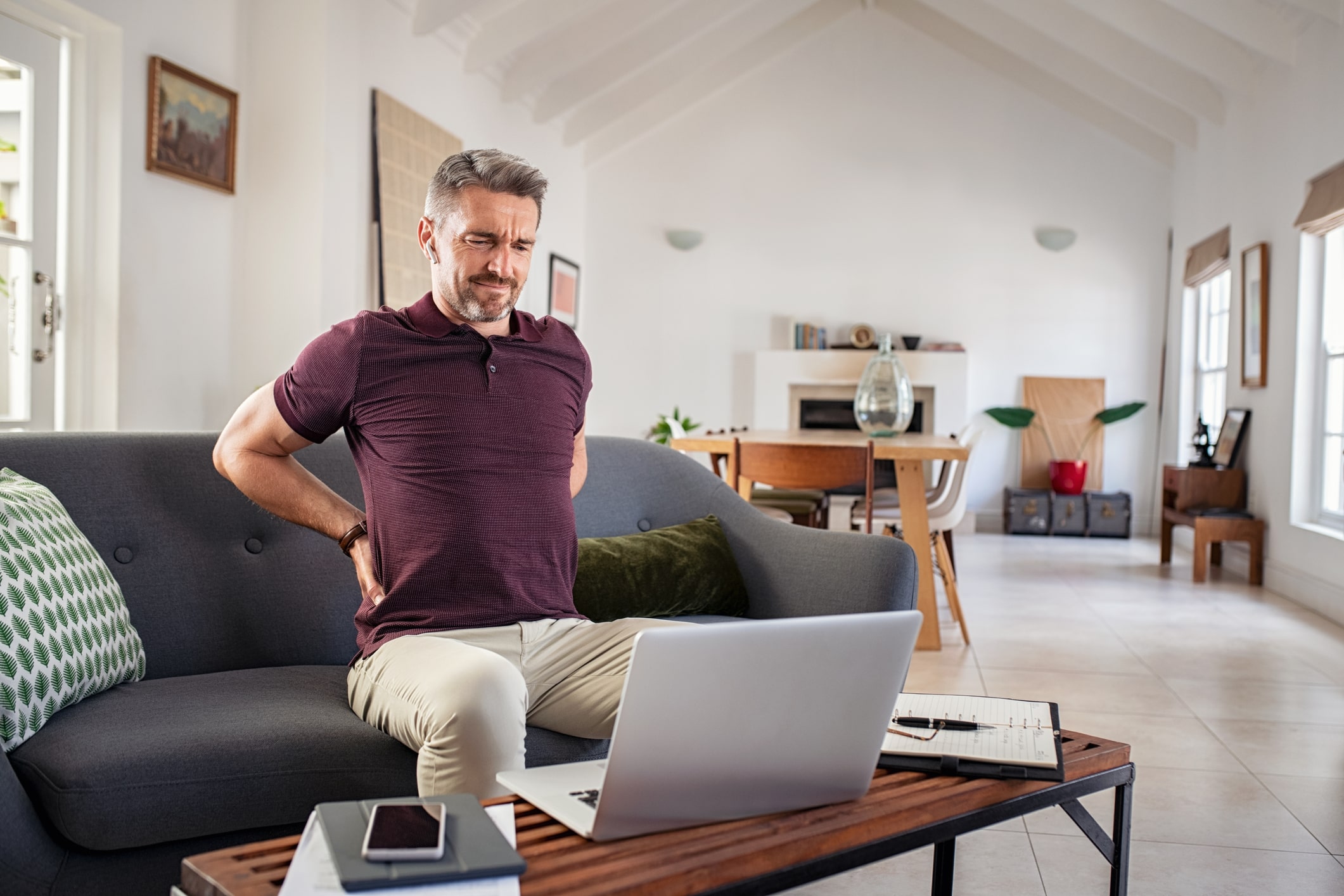
Maintaining good body posture is essential for our overall health and wellbeing, and without it, this can cause a number of health issues such as shallow breathing, slowed circulation and even blurred vision. Although good posture is important, many people adopt ‘bad’ or ‘incorrect’ posture on a daily basis. A multitude of factors contribute to this, including lifestyle differences, injuries or simply a lack of awareness.
Interestingly, there are other elements like chronic stress and poor sleep quality that, while not directly related to vision, can still have a significant impact on our visual health.
At Microprism Vision, we believe in a holistic and mindful approach to eye care, understanding that your posture plays an important part in your vision. By treating your vision as a key element of your overall wellness, we help you see clearly while also nurturing your mental, physical well-being, and ensuring that your posture supports optimal eye health.
In this guide, we will discuss the relevance posture has on our vision, the symptoms you may experience with poor posture, and helpful tips to help support your posture moving forward to ensure optimal eye health.
How Posture Plays an Important Part in Your Vision
Imperfect posture can negatively impact our vision in several ways. Probably the most common culprit is prolonged computer use, otherwise known as computer vision syndrome. As people spend more and more time on screens, whether that be for work or recreational purposes, their posture often becomes slouched, or forward-leaning. We also blink less when looking at screens for long periods, and these issues cause dryness and a strain on our eyes. Additionally, not everyone conforms to the regulations regarding screen height and angles, causing our eyes to work harder. Slouching regularly also causes tension in our muscles, which can restrict our blood flow and affect our eye health.
Signs Your Poor Posture is Affecting Your Vision
Worried that you may be experiencing the symptoms of bad posture? Here’s what you should be looking out for:
- Headaches
You may suffer from persisting headaches, or blurred vision, especially after screen use.
- Neck and shoulder strain
Your eyes may struggle to focus due to the excessive tension, which can cause visual disturbances.
- Double vision
Gained by looking at obscure angles, it’s common for it to look like you’re seeing double.
- Dry eyes
A reduced blink rate results in your eyes becoming dry and irritated.
Fool Proof Methods to Improve Your Posture
Any of those sound familiar? Don’t worry, we’ve got some tips to help you:
- Adjust your work station
Ensure your desk set up supports your posture, including appropriate screen positioning and chair support to help you sit correctly.
- Take frequent breaks
Move your body and your eyes! The rule is to stretch and look at something other than your screen every 20 minutes.
- Stay hydrated
Keep your body and your eyes healthy by drinking plenty of water.
- Control the lighting
Reduce eye strain and use proper lighting in your space. You can even opt for an anti-glare screen protector for extra support.
- Get regular check-ups
And finally, make sure you see a professional regularly to maintain optimal eye health.
Take Control of Your Posture – Your Vision Will Thank You for it!
As you can see, the way we move our bodies affects so much more than we realise. Adopting these simple practices on a daily basis will not only help us feel better but will ensure the health and longevity of our eyesight. And if you’re ever in doubt about your vision, seek prompt professional support.
Here at Microprism Vision, we provide a range of tailored solutions, including prescription contact lenses to alleviate eye strain during extended screen use, prism lenses for double vision to correct visual distortions caused by poor posture, and glasses for dyslexia designed to enhance reading comfort and focus, even when posture habits are less than ideal.
By taking care of both your posture and your vision, you’re setting yourself up for better long-term eye health—and we’re here to help you along the way.
